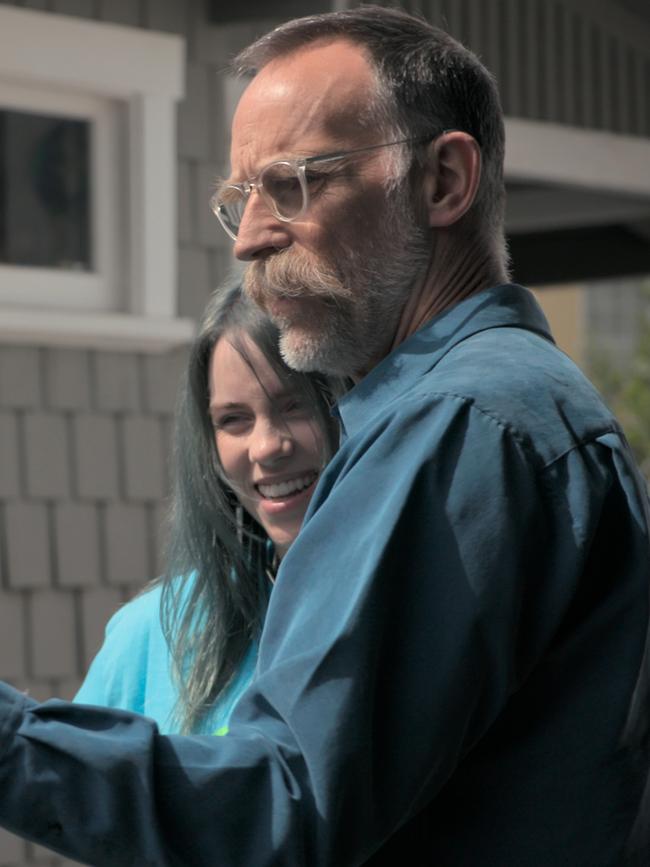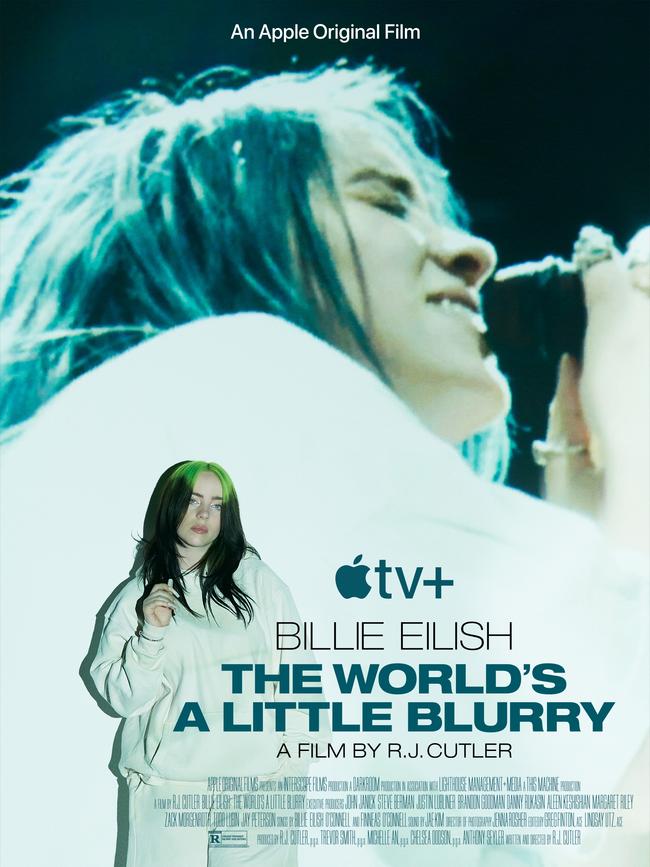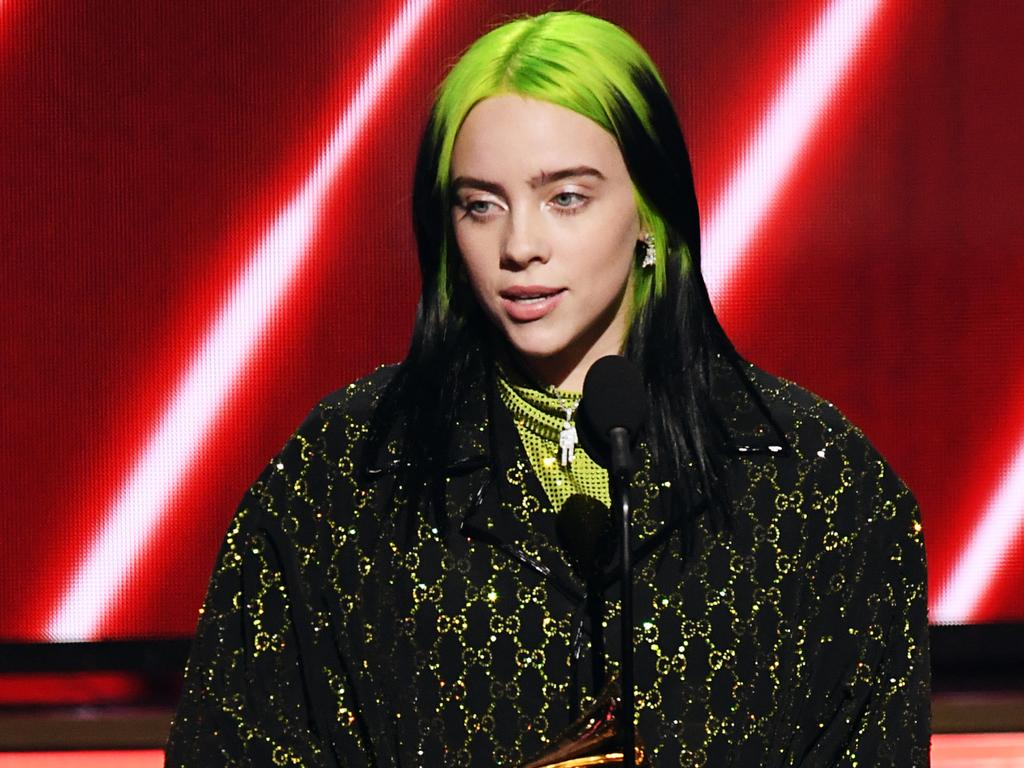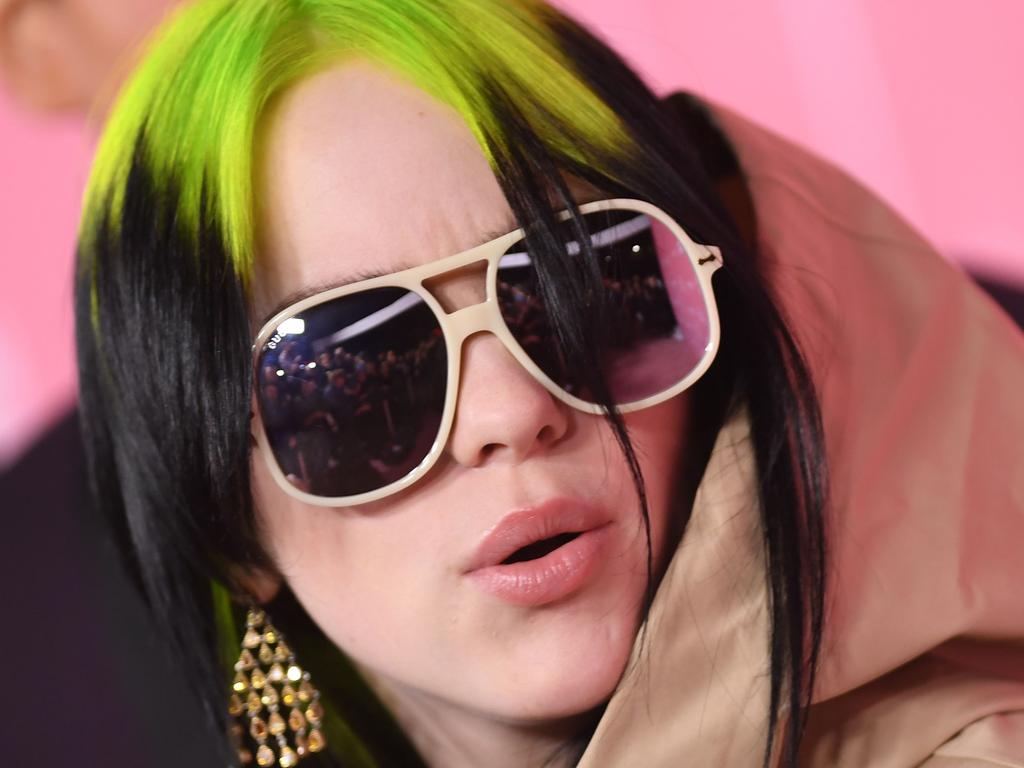All eyes on teen pop star Billie Eilish in The World’s A Little Blurry
A new documentary charts the remarkable ascent of teenage pop star Billie Eilish, a once-in-a-generation artist whose vocal talents are impossible to dismiss.

The heady mix of precocious artistic talents and overbearing parental figures can form a poisonous cocktail. From the Beach Boys to the Jackson 5, and more recently Britney Spears, pop music is littered with the stories of young performers whose journey from anonymity to fame has been scarred by mums and dads whose good intentions have turned to toxicity, ultimately spoiling the experience for their young charges.
In this sense, only time will tell whether American pop singer Billie Eilish becomes another cautionary tale or a rare success story. Based on the evidence amassed by filmmaker RJ Cutler across several years and edited into a superb 140-minute documentary named The World’s a Little Blurry, though, the teenager is better equipped than many of her forebears in terms of her family support structure.
The opening scenes show a 13-year-old Billie Eilish O’Connell singing with an extraordinary voice beyond her years, while her songwriter brother Finneas — four years older than she — stands beside her. It’s a rickety, bare-bones home recording set-up, but that song, Ocean Eyes, soon becomes the tectonic shift that sets a tidal wave rumbling toward the family.
During the scope of this film, wherein Cutler’s cameras are running from about 2017 until the beginning of last year, the O’Connells are so closely connected as to be practically enmeshed. That’s a concept in psychology which usually has negative connotations, freighted as it is with an unhealthy lack of boundaries that often requires years of therapy to unravel.
But these four seem to be enmeshed in the most beautiful way possible. Inside a two-bedroom bungalow in Highland Park, Los Angeles, Billie and Finneas were homeschooled by two artistically inclined parents, Maggie Baird and Patrick O’Connell, who encouraged the creative ambitions of their children from a young age. “Our family was just one big f..king song, and I still make music in my brother’s bedroom,” she says in the film’s opening minutes.

Once Ocean Eyes began making waves on streaming platform SoundCloud, record labels came knocking, although interestingly Cutler chooses to sideline just about every music industry figure that appears on camera. None of them is identified by name or caption, and their anonymity becomes a source of tension midway through the film, once Eilish has become famous. “Why do I have to meet all these f..king randos? Who are they?” she asks, to which her mother replies, “I don’t know — they’re connected to the label.”
Nobody can truly know how they will respond to the glare of global fame until the moment the spotlight is flicked on to them. Many artists struggle with its demands, no matter how much they thought they desired fame and adulation; some, sadly, do not survive the experience.
For a teenage girl who has grown up adoring the likes of Canadian pop star Justin Bieber — and who has had to navigate the unsettling waters of social media while steadily accumulating thousands, then millions of followers — the pressure could easily be crushing. The footnotes of pop culture are littered with one-hit wonders, also-rans and has-beens who could have been contenders for long, sustainable careers in the performing arts, but ultimately failed.
What the film — whose title is taken from lyrics from her song Ilomilo — does better than just about any other portrait of a celebrity in the making is to show the dark side of becoming a public figure. In that scene, having just given her all during a concert before thousands of crying and screaming fans, and while in the middle of a painful break-up, dozens of people she has never met before — nor will meet again — are now lining up to get their photos taken with the visibly depleted star backstage.
The following day, Cutler’s camera captures a familial exchange on the tour bus. “I’d love to meet your kids, but I don’t want to be shoved into meeting a bunch of random kids that only want a picture with me,” says Eilish. “It doesn’t feel good.”
Her mum listens, then says, “You were failed by me and your whole team yesterday. We did not do a good job last night. You were set up very badly. All truth.”
This short section is a compelling depiction of the realities of fame that most of us will never experience. It’s valuable footage if only because it helps to build empathy with performers, whom we tend to see only from a distance or through a screen, and form all of our opinions and feelings about them through that oft-distorted lens.

Still only 19, Eilish has already achieved more than many of her idols, and much more than just about any musician alive on this planet today. In four years she has transitioned from being a homeschooled nobody to an unforgettable household name.
It’s no stretch to state that just about every English-speaking person under 25 on the planet knows her name. Three of her songs have clocked up more than one billion plays on Spotify alone, and her music is intimately familiar to a legion of young listeners who scrutinise her every syllable on every song, as well as her public utterances, appearances and Instagram post to 76 million followers.
Unusually, though, Eilish’s singular vocal talent is so head-splittingly obvious to anyone who spends more than a few moments with her music that it is impossible to write her off as a flash-in-the-pan performer hopped up on the sugar high of youthful pop. Put another way, she is the kind of once-in-a-generation artist whose popularity cannot be easily dismissed by those decades older than her.
Broadly speaking, the O’Connell siblings’ musical style operates in two modes: stark, tender piano ballads and more conventional pop song structures set to club-ready beats, albeit intercut with unusual electronic sounds and samples. While hit singles such as Bad Guy — which topped Triple J’s Hottest 100 music poll of 2019 — fall neatly into the latter category, it’s the ballads in which the pair’s command of songwriting is immediately apparent.
Eilish’s delivery of the earworm chorus melody to their song When the Party’s Over is simply gorgeous, and undeniably so. Even if you didn’t know the siblings recorded all their music in a bedroom inside the family home, the pure nature of her close-miked vocal delivery transmits that intimacy effortlessly.
Her rise from playing 300-capacity clubs in 2017 to arena-sized rooms in 2019, following the release of her debut album When We All Fall Asleep, Where Do We Go? — which topped the chart in dozens of countries — was not without its hiccups. Cutler captures these hard moments with an unflinching gaze, such as when mid-tour shin splints nearly rob her of the ability to walk, let alone perform; or at a concert in Milan, when she tears ligaments in her ankle during the opening bars of the first song.
Embarrassed beyond belief before thousands of pairs of eyes, she exits the stage in tears and wants to abandon the show, but kind words from her tour manager — while her mother looks on — help keep a tenuous situation under control. “They’ll take whatever you give them, and they’ll totally be on your side,” he tells her. “They’re stoked that you’re here and that you’ve travelled so far.”
As well, there’s a beautiful narrative arc centred on Bieber, Billie’s idol. The way in which these two meet and become friends is plain adorable, and Bieber’s kind words for a fellow pop cultural titan — sent to her via Instagram messages, naturally — are truly touching; wisdom from someone a little older than her, passing on guidance for what lies ahead.
Spending more than two hours immersed in the story of a teenage pop singer may sound excessive, even tedious, but under Cutler’s direction it never comes close. Told chronologically and filmed candidly on handheld cameras, with no cutaways to talking heads or voiceovers providing additional context, the film rarely strays beyond the actions and words of the four O’Connell family members, and the dynamics therein.

Amid the glare of the global spotlight, Eilish is an adolescent coming to terms with herself and her place in the world. An aloof boyfriend weaves in and out of the narrative, prompting drama and heartache, while the pop star also earns her driver’s licence, an essential rite of passage for teenagers everywhere. Cutler is there to catch her dad giving her a pep talk in the family driveway before she heads off alone behind the wheel for the first time. Rather than cutting away, Cutler lets the moment breathe.
“All these things aren’t sudden for the most part; her childhood went somewhere a while ago,” says her dad, Patrick O’Connell, as much to himself as the filmmaker, after watching her drive away. “Well, there’s not much to it, but it is — it’s profound, and for her it’s the future. Everybody feels that way when you get your licence: you’re off to see what your life turns into. And then we (parents) just live in denial, as always. You can’t think about it too hard or you won’t let her do anything, you know?”

What Cutler has achieved with this film is remarkable and to be savoured. There might not be a more accomplished portrait of an essential pop culture figure released this decade, let alone this year. Complete and conflicted, polished yet not censorious, the filmmaker allows the time and space for Billie Eilish to be shown in her entirety, from quiet moments of satisfaction to outright disgust at her perceived shortcomings.
While nearing the end of recording her debut album, for instance — the album that will change everything for her — she despairs of her inability to nail a vocal take. “But it sounds bad, and I sound horrible, and I can’t sound good because I’m not good,” she says in frustration.
On hearing this, Finneas, the genius composer and arranger, responds evenly with just the right words. “You’re very good,” he says to his little sister. “Lots of people would agree with me that you’re very good.” The singer lapses into a pouting, dismissive silence, but in her heart of hearts she probably knows he’s right.
Billie Eilish: The World’s A Little Blurry is screening nationally in cinemas from Friday, February 26, and streaming on AppleTV+.





To join the conversation, please log in. Don't have an account? Register
Join the conversation, you are commenting as Logout